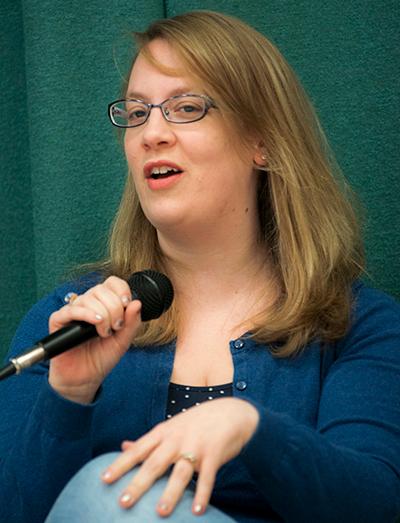
GREENBELT, Md. – Veronica Pinnick, a research associate at NASA’s Goddard Space Flight Center, recently completed her work on a highly advanced mass spectrometer for the Mars Organic Molecule Analyzer aboard the ExoMars Rover, which is scheduled for a Mars landing and exploratory mission in 2020.
Pinnick graduated Minot State in 2004 with a degree in chemistry, and later pursued her doctorate in analytical chemistry at Texas A&M.
Pinnick’s expertise in scientific instrumentation landed her a post-doctorate fellowship at Johns Hopkins School of Medicine where she first began work on the Mars Organic Molecule Analyzer. This would also mark her introduction to her future employer — NASA.
“I guess I proved myself useful because they agreed to take me on as a staff scientist after my post doc was over,” Pinnick said.
For the past eight years, Pinnick has dedicated her time and effort to the Mars Organic Molecule Analyzer. MOMA is a highly advanced scientific instrument that will allow scientists to drill into the planet’s surface and obtain samples that may solve the mystery of life on the red planet.
“We are using this tool to look for complex biological molecules, something that looks like life — peptides, proteins, DNA, RNA — anything that indicates that life has been there in the past,” she said.
Past Mars Rover missions have obtained surface level samples, but the planet’s harsh atmosphere makes it difficult for life to exist on the surface.
After completing exhaustive simulation and qualifying tests at Goddard, Pinnick accompanied MOMA to the European Space Agency headquarters in Italy where the equipment will undergo further testing and preparation that will culminate in its 2020 mission to Mars.
As for Pinnick, her contribution to the mission is complete. Although, she admits, it is hard to move on after giving so much of herself to the project.
“My entire heart and soul, and brain power, for the past decade went toward thinking how to build, design, test, and qualify it,” she said.
But Pinnick recognizes that the long days and demanding work schedule were worth it, given what it all means for future generations.
“The scientific discoveries that will no doubt happen when this lands on Mars and starts drilling, are things that will be read about in text books a hundred years later,” she said.
This web story is a preview of a larger feature on Veronica Pinnick slated for the upcoming Fall 2018 Connections magazine. If you currently do not get a copy of Connections in the mail and would like to receive the publication, contact Minot State at alumni@minotstateu.edu or by phone at 701-858-3399
About Minot State University
Minot State University is a public university dedicated to excellence in education, scholarship, and community engagement achieved through
rigorous academic experiences, active learning environments, commitment to public service, and a vibrant campus life.
Published: 08/30/18



